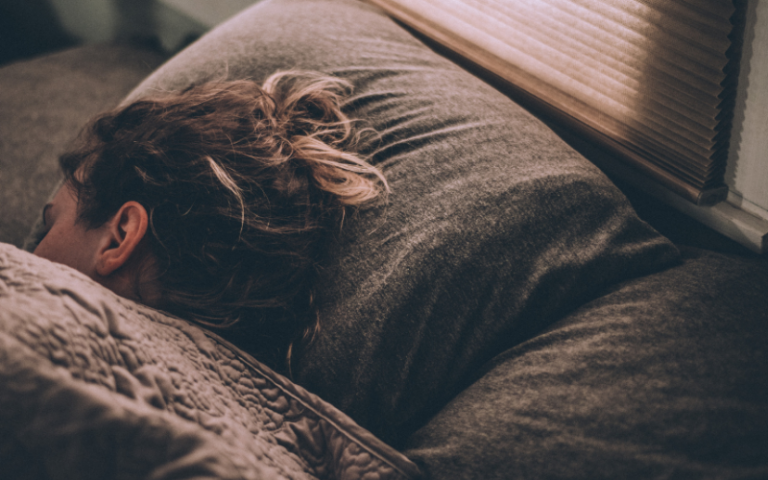Cognitive function: why getting enough sleep matters
15 March 2021
We all know that sleep is important, but did you know how closely sleep is linked to memory and cognitive function? Dr Victoria Garfield explains why and gives some tips on how to get better sleep.

The importance of sleep and getting enough of it
Like eating and breathing, sleep is a necessity for human beings and for this reason, we spend approximately one third of our lives asleep. While human sleep is complex and we still need more research to understand why and how our sleep is affected by our lifestyles and genes, as well as how our lifestyles and genes may affect our sleep, there are some things when it comes to sleep that we now know for certain. We also know that during the last year the COVID-19 global pandemic has impacted our daily lives in ways that most of us could never have imagined. Evidence now suggests, using population-based data, that people’s sleep has certainly been affected, such as having difficulty falling, maintaining sleep and dreaming about COVID-19, amongst others.
Sufficient sleep is crucial for maintaining good physical and mental health, as well as quality of life, general wellbeing and cognitive function. Sufficient sleep does not solely refer to sleep deprivation or not getting enough sleep, but it also encompasses sleeping for too long, which has also been shown to be detrimental to our health. How long we sleep for each night is affected by lifestyle factors including smoking, alcohol consumption and whether we exercise or not. Equally, too little or too much sleep is linked to greater risk of heart disease, stroke, type-2 diabetes, obesity and worse cognitive function.
Okay, so what’s the link between getting enough sleep and cognitive function?
Decades of research confirms that both insufficient and too much sleep are associated with poorer cognitive function and increased risk of Alzheimer’s disease in later life. Hundreds of studies suggest that the recommendation of 7-8 hours of sleep per night is generally advisable for adults. Numerous studies have found over and over again, that an unhealthy sleep duration is correlated (not necessarily implying causation) with worse cognitive performance. However, as recent as 2019, a study of around half a million adults showed that people who slept for less than 7 hours or more than 9 hours a day may in fact cause worse cognitive performance in terms of visual memory and reaction times. If you’re thinking about how this directly relates to you, there is evidence suggesting that around 21% of university students in countries like the UK do not get enough sleep and around 16% sleep for too long.
All this blurb about what not to do is great, but can you suggest any practical tips?
While some of this might be easier said than done, depending on what each student’s personal situation is, especially now, as we are still dealing with a global pandemic, it is important to know what you can do to improve your sleep.
Where possible, try to aim to get 7 to 9 hours of sleep per night and try to wake up and go to sleep around the same time every day of the week (this is not always possible for various reasons, but it’s still important to emphasise).
During exam time, as tempting as pulling all-nighters can be, this is generally not something that should be encouraged as sleeping before an exam is crucial – particularly relating back to the points above about cognitive function.
While we should be ensuring that we sleep at night, if you feel tired during the day and feel that a nap is necessary, try to limit naps to between 20 and 25 minutes.
As we all know, exercise is hugely beneficial for our mental and physical health and staying active is always recommended. However, if exercising during the evening try not to engage in strenuous exercise too close to bedtime and allow at least 2 hours between exercise and sleep.
Try to avoid consumption of caffeine around 3 hours before bed because it is likely to keep you awake.
If you are having trouble with your sleep then perhaps try keeping a sleep diary for a few weeks (or of course, if affordable/of interest then try a smart watch that tracks your sleep).
Resources and further reading
View an example of a sleep diary.
View the NHS sleep advice webpages.
Visit the Sleep Council website.
View the sleep resources available through UCL Student Support and Wellbeing.
 Close
Close

